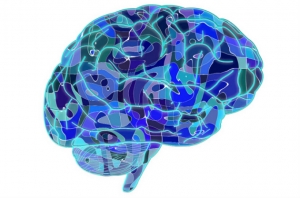AIC2017LA: Exercise proven intervention for Alzheimer's disease
June 1, 2017
 Historically, the medical community thought the brain could not regenerate itself. However, in recent years there has been a significant paradigm shift, said David Perlmutter, MD, FACN, at the Institute for Functional Medicine's 2017 Annual International Conference in Los Angeles, California. This new perspective likely started with the 1988 discovery by Dr. Peter Eriksson, who found that humans retain the ability to grow new brain cells throughout our entire lifetimes. There are many nerve growth factors, including brain-derived neurotrophic factors (BDNF) and basic fibroblast growth factors. BDNF has a role in neurogenesis, neuroplasticity, neuronal differentiation, neuronal repair, synaptogenesis. In a recent study, researchers looked at a couple thousand individuals who, at beginning of study, were free of dementia. The researchers measured BDNF at baseline and followed the subjects for ten years with neurocognitive testing. The results showed that those patients with the highest levels of BDNF had the lowest risk for developing dementia. Higher brain BDNF gene expression is associated with slower cognitive decline in older adults, says Perlmutter. BDNF is important in terms of how your brain works and we need to do everything we can to up-regulate BDNF expression, he says. Cognitive decline is 50 percent slower in those with higher BDNF. Practitioners should be concerned with how to enhance BDNF levels. When approaching neurodegenerative disease, the key is to leverage multiple interventions, says Perlmutter. These can include:
Historically, the medical community thought the brain could not regenerate itself. However, in recent years there has been a significant paradigm shift, said David Perlmutter, MD, FACN, at the Institute for Functional Medicine's 2017 Annual International Conference in Los Angeles, California. This new perspective likely started with the 1988 discovery by Dr. Peter Eriksson, who found that humans retain the ability to grow new brain cells throughout our entire lifetimes. There are many nerve growth factors, including brain-derived neurotrophic factors (BDNF) and basic fibroblast growth factors. BDNF has a role in neurogenesis, neuroplasticity, neuronal differentiation, neuronal repair, synaptogenesis. In a recent study, researchers looked at a couple thousand individuals who, at beginning of study, were free of dementia. The researchers measured BDNF at baseline and followed the subjects for ten years with neurocognitive testing. The results showed that those patients with the highest levels of BDNF had the lowest risk for developing dementia. Higher brain BDNF gene expression is associated with slower cognitive decline in older adults, says Perlmutter. BDNF is important in terms of how your brain works and we need to do everything we can to up-regulate BDNF expression, he says. Cognitive decline is 50 percent slower in those with higher BDNF. Practitioners should be concerned with how to enhance BDNF levels. When approaching neurodegenerative disease, the key is to leverage multiple interventions, says Perlmutter. These can include: - Exercise
- Turmeric
- Whole Coffee Fruit
- DHA
- Alpha lipoic acid
- SSRIs




















SHARE